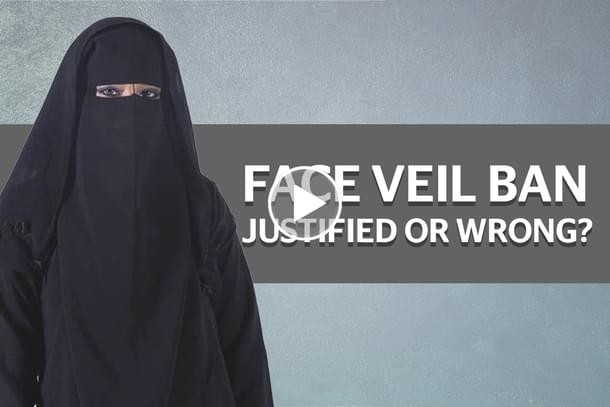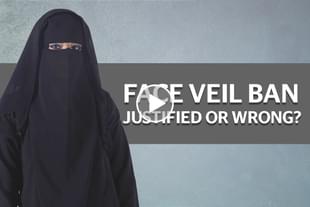Videos
Face Veil: Time For It To Go?
Swarajya Videos
May 10, 2019, 06:03 PM | Updated 06:03 PM IST
Save & read from anywhere!
Bookmark stories for easy access on any device or the Swarajya app.


Transcript:
After Sri Lanka banned the use of the face veil in the aftermath of the Easter day bomb blasts, there was widespread criticism against the use of the veil or the niqab.
Then came a decision by a progressive Muslim organisation based in Kerala. The Muslim Education Society banned the face veil in its 150-odd campuses, a decision that was applauded across the country.
Time and again, the face veil has been seen as a security concern worldwide. Because with the face veil on, the police and the public find it hard to identify the person behind the veil. So in these cases, they are forced to ask the person to lift the veil.
The basic concern is that the veil makes it easy for anyone to stay anonymous in the public space.
If you think of it, this also negates the point of putting up CCTV cameras in crowded places.
But, security concerns aside, a face veil can act like a barrier in everyday life, especially in human relationships, because you cannot see the face of the person you’re speaking to.
Don’t we shake hands with the people we meet and make eye contact? The face veil comes in the way of that basic courtesy.
Because of factors like these, several movements have taken shape to restrict women from wearing the headscarf. In fact, momentum for it has been growing wide and fast in Europe for over a decade now. And countries like the Netherlands, France and Belgium have already banned the face veil in public spaces.
But there’s also a progressive wing that sees the face veil, in its modern avatar, as a symbol of religious freedom and empowerment.
We could see this during the 2016 US presidential election when posters of a woman in burqa were a regular feature.
The people who subscribe to this view see the ban as an encroachment on the right of public expression of faith or plain anti-Muslim.
The legislation that came about in countries like Denmark were seen by some as a symptom of rising Islamophobia and right-wing propaganda.
These concerns were fuelled by radical steps like the overnight ban of the burqa or legislation that penalised wearing the burqa in public places.
The fact that there were no public protests in Sri Lanka after the ban is illuminating. Because it exemplifies the fact that the community probably realises that face veils should go.
Here, in India, the Shiv Sena called for a ban, too. But don’t you think that such a delicate matter would be best left to the community to debate, discuss, and take a call on, or do you think it should be banned outright?
Let us know in the comments, and don’t forget to like, share, and subscribe.
*
Read: The Face Veil Must Go. It Destroys Trust And Public Etiquette. Hear Ambedkar On It
*
Subscribe to Swarajya on YouTube, won’t you?





